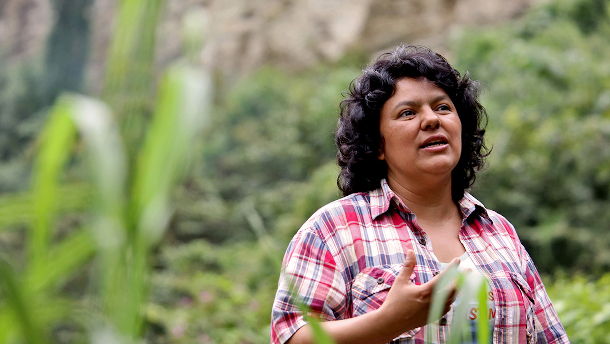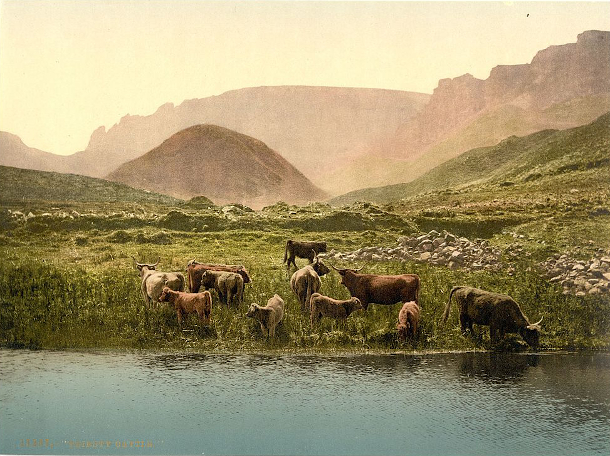Beyond the Headlines
Air Date: Week of July 16, 2021

Allergies in our warming world are nothing to sneeze at. (Photo: Pixel Rich on Unsplash)
Allergies in our warming world are nothing to sneeze at, Peter Dykstra of Environmental Health News tells Host Steve Curwood in this week’s Beyond the Headlines segment. Also, a glimmer of justice for slain indigenous environmentalist Berta Cáceres, and in the history calendar, a look back almost 200 years to a landmark animal cruelty law in Britain.
Transcript
CURWOOD: It's Living on Earth, I'm Steve Curwood.
And it's time now for a look beyond the headlines with Peter Dykstra. Peter's an editor with Environmental Health News, that's EHN.org, and DailyClimate.org. He's on the line now from Atlanta, Georgia. How you doing, Peter? How do you like the summer heat?
DYKSTRA: Oh, summer's okay. It's currently thunder storming here in beautiful Atlanta. But there's an element of the heat and drought and potential wildfire season, all the things that are besetting the western US right now. It turns out that in the desert, this all makes for a terrible allergy season.
CURWOOD: Whoa, whoa, whoa, allergies are related to the drought and all this climate disruption? How so?
DYKSTRA: Yeah, when you have a virtually snow-free winter, very little rain, extraordinary heat and everything else, people who suffer from allergies, like me, have a really hard time because pollen stays in the air; we're talking about grass pollen, pine tree pollen, possibly even ragweed from last fall, staying in the air forever. And the desert can be an absolutely hellacious place for people with allergies, like me.
CURWOOD: Okay, well, so something else to think about with the climate that, you may not have water, you may have to deal with fires, you may get storm surges, and you may be sneezing a lot. Okay, Peter, hey, what else do you have for us?
DYKSTRA: Something we've touched on a lot in the last five or six years, the murders of activists in developing nations who were trying to protect the environment, the most famous of whom was Berta Cáceres, she won the Goldman prize back in 2015 for her work opposing a hydro dam project in her native Honduras. A year later, she was murdered. Eventually, there were seven people arrested and convicted for the murder. But just in the last few weeks, Roberto David Castillo -- former Honduran Army Intelligence Officer, trained in the US and also head of the hydro company that was building the dam -- was found guilty as a co-collaborator in ordering the murder of Berta Cáceres. And if you're into justice and into protecting some very, very brave people, this is good news.

The murder of Berta Cáceres drew global attention to the rampant killings of environmental activists and land defenders. At least 212 were slain in 2019, according to Global Witness. (Photo: Goldman Environmental Prize)
CURWOOD: Of course, now, people can be convicted, but what kind of sentence? I mean, is this guy just gonna do a little community service and walk, or what's happening?
DYKSTRA: We'll find that out in early August when he is sentenced. The maximum sentence ranges between 24 to 30 years.
CURWOOD: Okay, Peter, hey, let's take a look back in history now and tell me what you're looking and seeing.
DYKSTRA: July 22nd, 1822, when many of your listeners were not alive. It was one of the first laws governing the treatment of animals. The British Parliament passed what was called Martin's Law.

In 1822, the British Parliament passed Martin’s Act, which prohibited cruel treatment of cows, horses, oxen, mules, and sheep. (Photo: Library of Congress, public domain)
CURWOOD: And I gather this era was also one of reform, what else did they move forward in terms of taking care of the ecology and such?
DYKSTRA: Well, thanks to famous Britons like the poet Wordsworth and the scientist Michael Faraday, they actually were early hell-raisers about environmental conditions in London, from coal burning; choking, sometimes lethal pollution; and also the smell of the Thames River. There were early attempts to regulate both air and water pollution. Those laws didn't get far; the river was still dirty, the air was still dirty and sometimes lethal. But Britain took some of the first steps to fix some of the worst problems.
CURWOOD: Hey, Peter, thanks so much for taking the time with us today. Peter Dykstra is an editor with Environmental Health News, that's EHN.org and DailyClimate.org. We'll talk to you again real soon.
DYKSTRA: All right, Steve, thanks a lot. Talk to you soon.
CURWOOD: And there's more on these stories on the Living on Earth web page. That's LOE.org.
Links
The Salt Lake Tribune | “Another side effect of Utah’s drought: A terrible allergy season”
The Guardian | “Berta Cáceres assassination: ex-head of dam company found guilty”
Listen to LOE’s coverage of the murder of Berta Cáceres and other environmental activists
About Martin’s Act, the “Cruel Treatment of Cattle Act 1822”
Living on Earth wants to hear from you!
Living on Earth
62 Calef Highway, Suite 212
Lee, NH 03861
Telephone: 617-287-4121
E-mail: comments@loe.org
Newsletter [Click here]
Donate to Living on Earth!
Living on Earth is an independent media program and relies entirely on contributions from listeners and institutions supporting public service. Please donate now to preserve an independent environmental voice.
NewsletterLiving on Earth offers a weekly delivery of the show's rundown to your mailbox. Sign up for our newsletter today!
 Sailors For The Sea: Be the change you want to sea.
Sailors For The Sea: Be the change you want to sea.
 The Grantham Foundation for the Protection of the Environment: Committed to protecting and improving the health of the global environment.
The Grantham Foundation for the Protection of the Environment: Committed to protecting and improving the health of the global environment.
 Contribute to Living on Earth and receive, as our gift to you, an archival print of one of Mark Seth Lender's extraordinary wildlife photographs. Follow the link to see Mark's current collection of photographs.
Contribute to Living on Earth and receive, as our gift to you, an archival print of one of Mark Seth Lender's extraordinary wildlife photographs. Follow the link to see Mark's current collection of photographs.
 Buy a signed copy of Mark Seth Lender's book Smeagull the Seagull & support Living on Earth
Buy a signed copy of Mark Seth Lender's book Smeagull the Seagull & support Living on Earth

